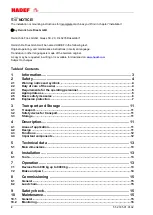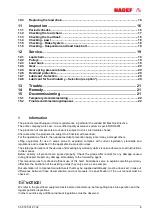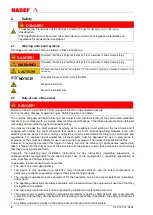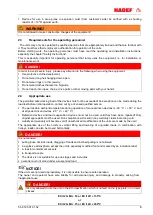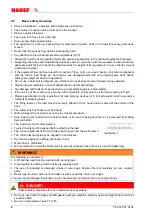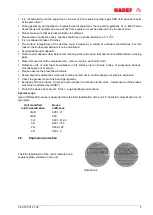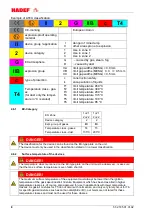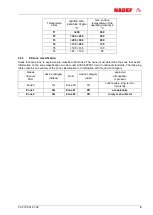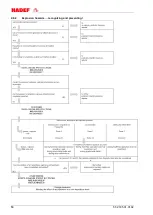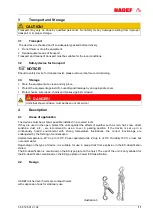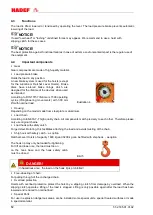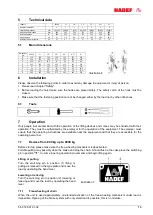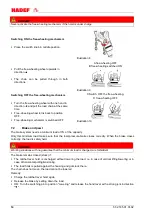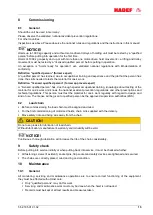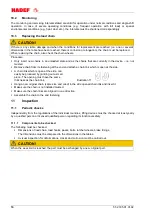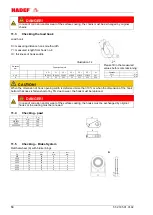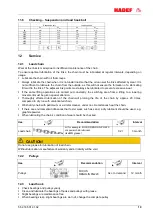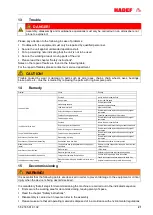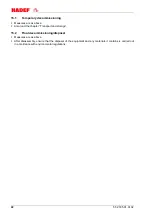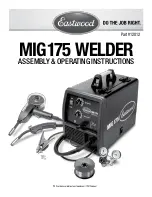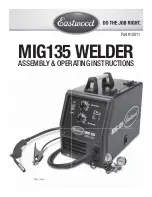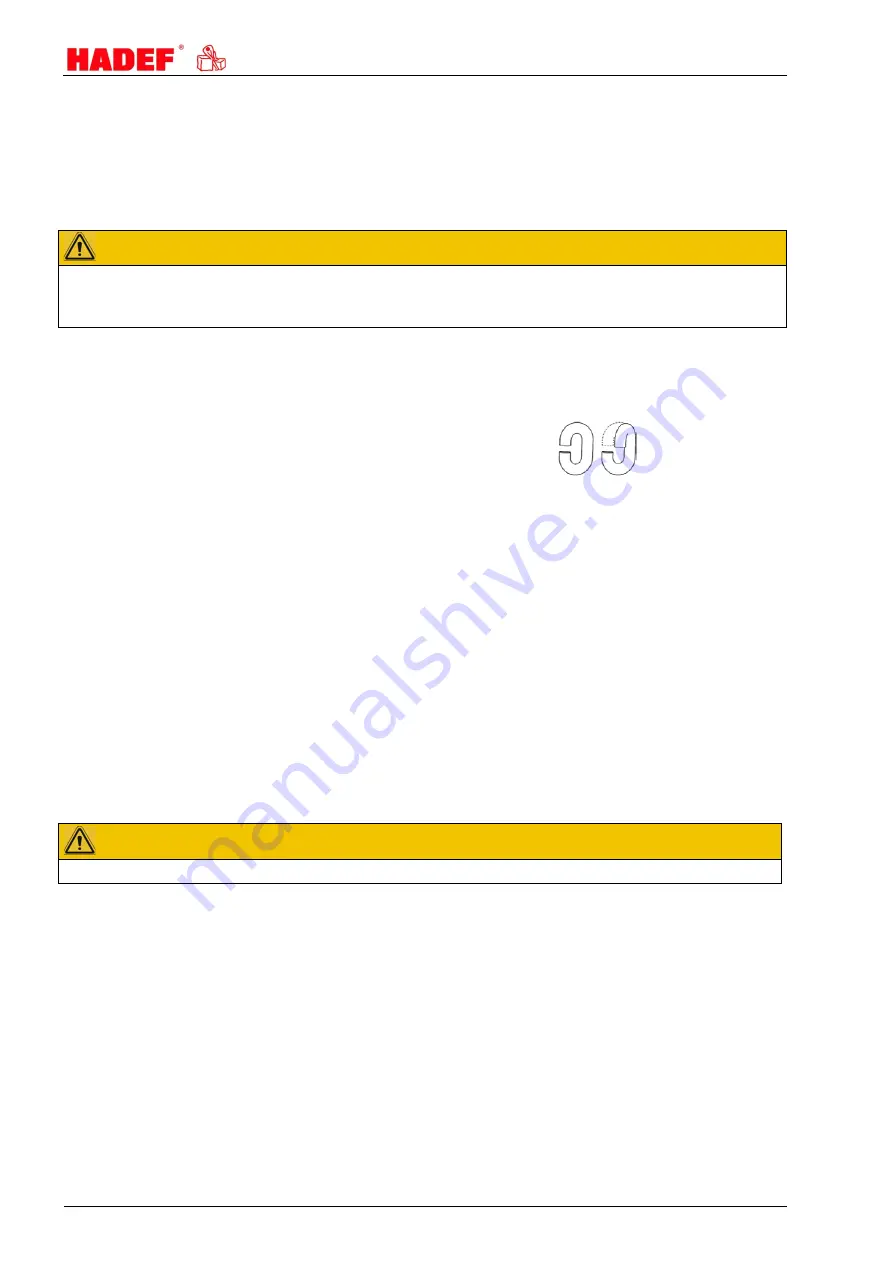
16
5.52.185.01.01.02
10.2
Monitoring
The monitoring and servicing intervals stated are valid for operation under normal conditions and single-shift
operation. In case of severe operating conditions (e.g. frequent operation with full load) or special
environmental conditions (e.g., heat, dust, etc.), the intervals must be shortened correspondingly
10.3
Replacing the load chain
CAUTION!
If there is any visible damage and when the conditions for replacement are reached (i.e. one or several
dimensions in the table have been reached, there is corrosion or elongation), the chain must be replaced.
When replacing the chain, also check the chain wheels.
Procedure:
Only insert new chains in an unloaded state and as the chains that are currently in the device – i.e. not
twisted.
Remove chain from its fastening at the end and attach a chain link which is open at the side.
A chain link which is open at the side, can
easily be produced by grinding out a small
piece. The opening must have the same
thickness as the chain link.
Illustration 11
Hang a new original chain (same size and oiled) in the side opened chain link and insert it.
Make sure the chain is not installed twisted.
Make sure the chain links are aligned in one direction.
Assemble the chain to the end fastening.
11
Inspection
11.1
Periodic checks
Independently from the regulations of the individual countries, lifting devices must be checked at least yearly
by a qualified person or licensed qualified person regarding its functional safety.
11.1.1
Components to be checked
The following must be checked:
Dimensions of load chain, load hooks, pawls, bolts, ratchet wheels, brake linings.
The dimensions must be compared to the dimensions in the tables.
A visual inspection for deformations, cracks and corrosion must be carried out.
CAUTION!
When the wear limit is reached, the part must be exchanged by a new, original part.

